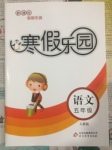
Judging from his manners at the party, he doesn’t seem ______ much education.
A. to receive B. to be receiving
C. to have received D. to have been received
 寒假乐园北京教育出版社系列答案
寒假乐园北京教育出版社系列答案科目:高中英语 来源:英语教研室 题型:050
The following are for forms about medicine
How to use the medicine is very important Never take some by mistake.
Take the medicine with water, followed by one tablet every eighty hours, as required. For further nighttime and early morning,. Take two tablets at bedtime. Do not take more than six tablets in 24 hours. For children of six to twelve years old, give half the adult dosage. For children under six years old, come to your doctor for advice. Reduce dosage if nervousness, restlessness or sleeplessness lakes place.
Each pill of the medicine each time taken three times every day for fourteen years old and above. As usual, a pill 6:30 a.m., before breakfast, one before 11:00 and one before sleep. Not for children under six years old and old persons with heart- attack.
The medicine for a person with a fever. Once two polls a day before sleep for adult. Not take the medicine without fever. Half for children under 12 years old. Children with a high fever, go to see a doctor
Take medicine three times a day, once four pills for adult with a cold. Half of the pills or less for children under10years old. Take the medicine before breakfast, lunch, and supper or before sleep.
Tablet药片,pill药丸,dosage测量
1.If one adult with fever requires to get rid of pain, it’s suggested that he .
A. take three tablets before sleep
B. stop to take another pill
C. take two tablets before sleep
D. go to see a doctor at once
2.Obviously a kind of medicine can’t be proper for , judging from the information.
A. children over twelve years old
B. some adults over 18 years old
C. some old persons with heart attack
D. neither adults nor children
3.When a ten-year-old has a cold, he had better u.
A. have about more than fourteen pills a day
B. have twice a day
C. have for times a day
D. have nine pills a day
4.How many kinds of medicine are used for the children of six years old according to the passage?
A. All of tem.
B. Three kinds of medicine
C. Two kinds of medicine
D. Almost not any medicine
查看答案和解析>>
科目:高中英语 来源:广东省佛山市顺德区2011届高三高考热身英语试题 题型:050
| |||||||||||||||||||||||||||||||||||||||||||||||||||||||||||||||||||||||||
查看答案和解析>>
科目:高中英语 来源:广东省深圳高级中学2011-2012学年高二上学期期中测试英语试题 题型:050
| |||||||||||||||||||||||||||||||||||||||||||||||||||||||||||||||||||||||||
查看答案和解析>>
科目:高中英语 来源:黑龙江省哈六中2012届高三第一次模拟考试英语试题 题型:050
| |||||||||||||||||||||||||||||||||||||||||||||||||||||||||||
查看答案和解析>>
湖北省互联网违法和不良信息举报平台 | 网上有害信息举报专区 | 电信诈骗举报专区 | 涉历史虚无主义有害信息举报专区 | 涉企侵权举报专区
违法和不良信息举报电话:027-86699610 举报邮箱:58377363@163.com